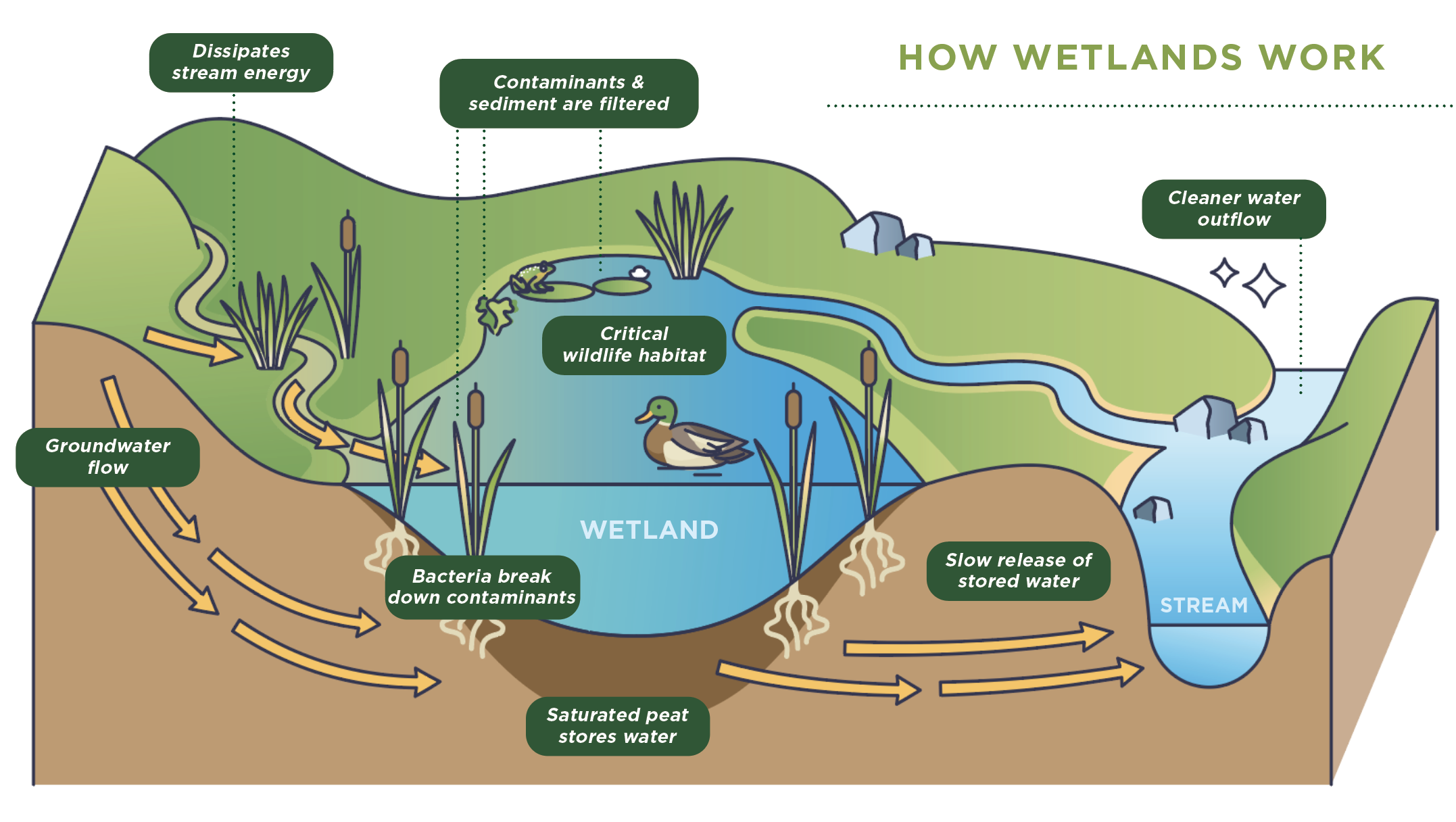Ask an Advocate: How does a recent U.S. Supreme Court ruling impact Upstate waters?
November 2nd, 2023
By Erika Hollis
Dear Ask an Advocate,
I heard on the news that there was a new Supreme Court ruling weakening wetland protection — and that it impacts the entire country. Isn’t all the water protected by the Clean Water Act (CWA)? If some wetlands aren’t protected now, then what will happen in our area?
Sincerely, Confused in Cherokee County
Dear Confused,
Unfortunately, you heard right. In May of 2023, the Supreme Court ruled that as many as half of the country’s 118 million acres of wetlands cannot be protected by the Clean Water Act (CWA), which has protected our navigable waters from harmful pollution since 1972. To understand why this is such a devastating blow, it's important to understand why wetlands matter so much.
Wetlands are critical for water quality
Think of wetlands as a natural sponge — they catch and slow down the flow of water and slowly release it over time, which reduces flooding and erosion downstream.
Wetlands also act as natural filters by trapping sediment and removing pollutants through their dense root systems and absorbing excess nutrients through plant uptake. In this way, wetlands are like the kidneys of watersheds, vital to our health and often overlooked.
Wetlands are so effective at cleaning up pollution, in fact, that they are sometimes used to treat wastewater and they make a difference when it comes to treating our drinking water. Forested wetlands even reduce treatment costs for drinking water sources, making them a critical part of our natural water infrastructure.

What about this Supreme Court ruling?
The case — Sackett v. EPA — began when Michael and Chantel Sackett sought to build a house a few hundred feet from Priest Lake in the Idaho Panhandle. The Sacketts began to fill the lot with gravel, but the EPA halted work in 2007 after determining that the Sacketts’ lot contained a federally protected wetland under the CWA.
In response, the Sacketts sued the EPA in 2008, and over the next 14 years the case made it to the Supreme Court. On May 25, 2023, the majority ruled that the wetlands on the Sackett property were not protected under the CWA because there was dry land between the wetland and other bodies of water.
What are the consequences?
Under this new ruling the law only provides federal jurisdiction to wetlands that are linked to major water bodies through surface connections, not isolated wetlands. This decision defies the science that confirms wetlands have critical underground connections through groundwater systems, not just connections we can see on the land’s surface.
Lakes, rivers, streams, wetlands, and groundwater are part of a single system where water is exchanged above and below ground. These wetlands and their underground connections prevent and mitigate floods, filter pollutants, support forestry, and are essential habitat and means for recreation. Without protection from the CWA, these wetlands and their groundwater connections are extremely vulnerable to abuse and pollution.
What does this mean for the Upstate?
According to the National Land Cover Database, wetlands make up 20% of the land in SC, with 6% of those wetlands located in the Upstate. Our unique Upstate wetlands provide important benefits to our state’s water resources by helping protect SC’s headwaters, which include drinking water resources.
Without federal protections, many of our region’s precious isolated wetlands are left exposed to the increasing demands of development.
It is critical that Upstate residents remain vigilant and empowered to advocate for wetlands in our communities. Individual states can choose to enact stronger wetland protections — the CWA is just a starting point for protecting water bodies.
You can reach out to your state elected officials to request expanded protections for SC’s wetlands. To find your SC legislators, click here.

Erika Hollis
Clean Water Director
Upstate Forever
To stay informed on this and other water-related issues, sign up for The Water Log e-newsletter at upstateforever.org/email.
For more information on the impacts of the Sackett v. EPA ruling, contact Clean Water Director Erika Hollis ehollis@upstateforever.org.
Thumbnail and header photo of bunched arrowhead by Mac Stone.

